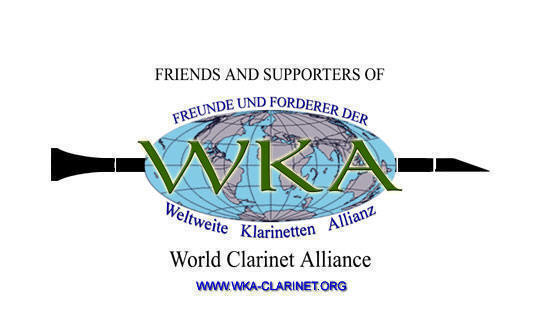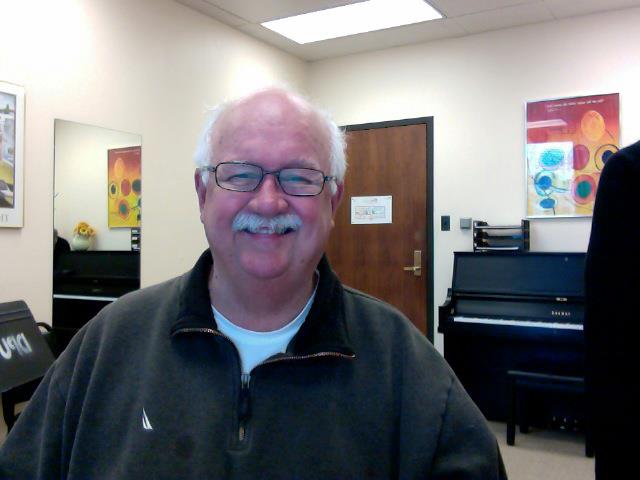Listen as Larry Combs shapes an arching phrase of a Bruckner symphony, making it sound as if were riding an infinite stream of air. Listen as he slyly teases the jazzy syncopations of the song "Chicago," a signature encore he has played many times with the Chicago Symphony Orchestra at home and on tour.
At those times, and on countless other occasions, you will agree with Combs' colleague, CSO trombonist Michael Mulcahy, that Combs is "the leading player of his generation of clarinetists."
The Larry Combs era at the Chicago Symphony effectively drew to a close last week when he performed his final concert as the CSO's principal clarinet. After a 34-year tenure that has spanned exactly half his life, he is giving up the first chair, although he plans to continue performing as a section "ringer" during the CSO's fall European tour and on other occasions.
So why did the clarinetist, one of the pillars of the CSO's celebrated woodwind choir, decide to pack it in while still, by general consent, playing at the top of his game?
"When I started thinking about retiring about two years ago, I also thought about how active I've been since coming to Chicago," Combs told me during a recent rehearsal break. "I realized I've gotten to an age -- 68 -- where maybe it might be wise to put on the brakes a little bit."
Combs was honored earlier this month at a donor appreciation concert by members of the orchestra. Also, at the season's penultimate subscription concert three nights later, he received the Theodore Thomas Medallion for Distinguished Service, an award given to all retiring members of the ensemble.
Still, the parting gift Combs no doubt will treasure the most is an ebony music stand presented him by his CSO section colleagues John Bruce Yeh, Gregory Smith and J. Lawrie Bloom. Affixed to the stand is a plaque bearing the inscription "in appreciation of our years together."
Clarinetists tend to be a rather laid-back breed of symphonic musicians -- not as fun-loving or as gregarious as horn players, nor as neurotic as oboe players, who are perpetually searching for the perfect reed to play on.
In conversation Combs certainly fits the stereotype, but, as with all such labels, it fails to account for what's inside. Certainly it doesn't begin to describe Combs the tireless workaholic; the thoughtful, serious and caring musician; or the model section leader and colleague, greatly admired by CSO players young and old.
"Larry has earned authority by virtue of his integrity and his respect for the music, beyond his respect for himself," says Mulcahy. "He has very strong opinions but what he doesn't have is a huge ego. Whenever he plays the clarinet you really don't think about the instrument -- you really think about his voice as a musician."
Longtime CSO principal horn Dale Clevenger, a friend and colleague for nearly 50 years, praises Combs' "infinite control of his instrument technically" and his ability "to anticipate what a conductor wants before having to be asked."
Yeh, the CSO's assistant principal clarinet and E-flat clarinet, considers Combs' retirement the closing of a major chapter in the CSO's history, given the fact that the clarinet choir is the only remaining section in the orchestra to have been entirely engaged by former music director Georg Solti.
Mutual admiration
"From the beginning Larry was a musical inspiration to me and a generous, sensitive and understanding colleague," says Yeh, who will take over as principal clarinet at least until a permanent replacement is engaged following auditions this fall and/or in January 2009.
Combs is quick to return the compliment.
"For certain the thing I'll miss the most is my colleagues and the satisfaction of sitting down and talking to them during rehearsal breaks," he says. "I consider them to be a very fine group of people to make music with, to learn from and to be friends with."
When Combs wasn't rehearsing and performing with the CSO, he kept exceedingly busy as a chamber musician and teacher. Now that he has given up his full-time duties with the orchestra, he will have more time to devote to those other musical pursuits.
He plans to work even more extensively with the Chicago Chamber Musicians, of which he has been a director since co-founding the ensemble in 1986. He also plans to increase his teaching load at the DePaul University School of Music, where he has been a faculty member since 1981.
Among the happiest memories he is taking away, Combs says, are those of the performances he gave here with Daniel Barenboim, cellist Yo-Yo Ma and other musicians during Barenboim's tenure. He also speaks warmly of the concert performances of Wagner's opera "Die Meistersinger" Solti conducted and recorded here in 1995, two years before his death.




